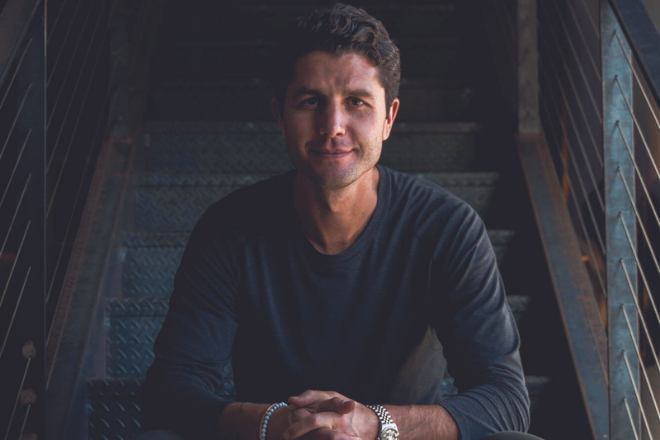Interview by Cecily Garber
In 2006, Ben Nemtin and his closest friends developed a list of “100 things to do before you die” and committed to achieving those items — while helping others along the way. For every item accomplished, they helped a stranger achieve one of their dreams. What started out as a two-week journey turned into a popular TV show — “The Buried Life” on MTV — a #1 New York Times bestselling book, and an inspirational movement that encourages individuals to realize their dreams while helping others in the process. Nemtin inspires individuals to raise the bar in their own lives by turning dreams into projects and creating an achievable pathway to success.
Net Assets: We know that even before the pandemic, student mental health was a growing concern, and now the pandemic has exacerbated the problem. And it’s not just students — staff and faculty wellbeing is also under pressure, to say the least, after two school years under new pandemic protocols.
You experienced depression as a teenager and speak frequently about mental health. What advice do you have for school leaders looking to help both students and staff recover a sense of wellbeing?
Ben Nemtin: I think the first thing is to take care of yourself so that you can begin to take care of the students. People in education are often givers, and they give, give, give and sometimes forget to give to themselves. So it's a “put on your oxygen mask first” thing; you care for yourself so that you're in a position to care for the students.
Then when it comes to the students and their wellbeing, as you said, it’s been an issue for a long time, and now it’s in the spotlight, and we won't really begin to understand the gravity of what’s happened for another few years. I think the big thing is to help students understand that what they're feeling is okay, and that they have someone to talk to about it. It’s creating an environment where kids feel safe to share what they're going through and ask for help. Adults on campus should know how to put students in touch with someone at the school that can help, a professional counselor or whatever resources are available.
Getting to a professional is the most important thing. And that's a big gap, between a kid feeling anxious or depressed, and then taking the step to talk about it with someone that can help care for them. How you cross that gap is a big question, but I think one way is to be open and to talk about struggles. It's normalizing the conversation, de-stigmatizing the conversation.
One of the silver linings of the pandemic is that now mental health has become more of a national conversation. People are starting to equate mental health with physical health. People are starting to understand that this is not a weakness, just a human thing.
One of the silver linings of the pandemic is that now mental health has become more of a national conversation. People are starting to equate mental health with physical health. People are starting to understand that this is not a weakness, just a human thing. And younger generations are more so this way, which is good. When kids are online, they can see their idols sharing their struggles, which is huge.
So I think perhaps if teachers and school leaders can be open about their own personal struggles in a developmentally appropriate way, sometimes that could create space for kids to think that it’s okay to feel a certain way and even approach an adult at the school to share what they’re going through.
The other thing is to have resources available for the kids, whether it's counseling or therapy or other resources — schools will have a good idea of what they can do. It’s educating the kids on what's available, de-stigmatizing that charged conversation and helping them understand how they can talk to someone in a very frictionless way.
Net Assets: It seems the same thinking might apply in helping staff and faculty work through mental health concerns, is that right?
Nemtin: One hundred percent. School leaders, HR directors and others working on these concerns can work to create a culture where people feel like they can ask for help, where it’s not looked down upon, where getting help is actually celebrated as part of furthering your professional development and becoming a better educator.
The C-suite and high-level leaders can show vulnerability and lead with empathy. If you’re telling people you want them to share and be open, to ask for help and be vulnerable, and to go to HR to ask for the available resources, I think as a leader you need to show some vulnerability as well. You need to lead by example. Consider opening up about something you might be struggling with so it creates an environment from the top down. People will see that if leadership is doing this, it’s okay for me to do it too.
Net Assets: Another silver lining of the pandemic is that in independent schools’ many pivots from spring 2020 to fall 2021, they innovated more than they could have imagined, adapting to all new ways of learning and being together. Yet now is not the time to rest on laurels, but rather to keep thinking big to capture new opportunities.
You’ve crossed so much off your bucket list — 95 of 100 items to be precise. How do you stay motivated to keep tackling new challenges — and how can schools do the same?
Nemtin: Yes, educators and school leaders had to change at an unprecedented rate. When you're faced with these big challenges, you're forced to think outside the box and be creative and create solutions that you may otherwise have not come to because your hand wasn't forced. This is the pressure that makes diamonds, as they say.
I think if we keep coming back to the impact of educators, that will help. It’s difficult to measure, but there is a ripple effect in the community. You’re impacting not only kids but their families. It’s not hyperbole to say that one teacher can change a life. I think that can get lost in day-to-day challenges.
Why do we want to keep innovating and dreaming big? It’s to create a better future and change the lives of children, who are the future. You want to reenergize yourself so you can continue to think big and dream big.
Net Assets: One of the items on your bucket list was to teach an elementary school class. Why was that on your list and what did you take away from the experience?
The biggest regrets people have at their end of their lives are the things they didn’t do, not the things they did do.
Nemtin: In terms of why it was on our list, in line with what I said before, if we can make just a small imprint on the future and future generations, that is huge. We were able to be face-to-face with a class of kids and tell them it’s okay to dream and that it’s important to dream.
In terms of what we got out of it, kids have so much joy, and they are so pure. When you’re young, you dream. As you get older, you hear, “You can’t do that” more and more, and you start to believe it. You begin to believe that what you want is not the best idea or that it’s unrealistic. But the best thing you can do as a kid is to dream and believe in yourself and pursue what you want to do. The biggest regrets people have at their end of their lives are the things they didn’t do, not the things they did do.
It is refreshing to see that youthful exuberance, of just going for it, without evaluating the risks too much, or worrying what other people think. Many times people are more worried about perceived risks than real risks. It’s also shown that the number one thing that holds us back from pursuing our dreams is our fear of failure or what other people think, rather than any real obstacles. Kids don’t worry as much about the end game – it was refreshing to hear that and see that.





